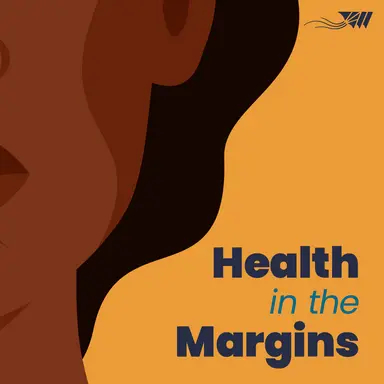The Health in the Margins podcast is a podcast that hosts conversations between experts and community members to investigate disparities and uncover solutions related to diversity and disability in healthcare.
On this show, Tinu will be speaking with a variety of guests, including community leaders, government policymakers, and many more incredible people making strides to better the healthcare experiences of all people.
About Tinu-Abayomi-Paul

Tinu Abayomi-Paul is a writer, an activist, a disability advocate, and the founder of the organization Everywhere Accessible.
Through her organization, she curates a free 40-page list of patient-facing hashtags for the disabled and chronically ill Twitter community. In February 2022, her ideas for a better Black Disability experience will be featured in The Black Agenda, edited by Anna Gifty Opoku-Agyeman.
She is also a member of Global Healthy Living Foundation’s COVID-19 Patient Leadership Council Board, National Pain’s Community Council, as well as Women Who Tech’s US Start-Up Advisory Board
Transcript
[00:00:00] Tinu: Hi, I’m Tinu Abayomi-Paul, host of the new show Health in the Margins.
Read More
[00:00:06] [Music]
[00:00:06] Health in the Margins is a podcast that hosts conversations between experts and community members to investigate disparities and uncover solutions related to diversity and disability in healthcare.
[00:00:20] Navigating the healthcare system and the world around us can be incredibly overwhelming as a disabled person or as a member of a marginalized community. These disparities span from race, to economic status, to physical ability, and more. The type of healthcare and health education we receive is intrinsically linked to our identities and wellbeing.
[00:00:45] Like many people, when I first realized I had a major disability, I hid my disabilities as best I could via a process we in the chronic illness and disability community call “masking”. Masking is when you hide your disabilities by doing things like not using your mobility or disability aids in public, such as not using your cane, or you may go to great lengths to hide treating your disabilities from work or family by doing things like taking your prescriptions only in private.
[00:01:16] This only made both my health and the lack of understanding of people around me, worse. Around 2011 I slowly stopped hiding the fact that I had back pain, problems walking due to nerve damage, and other intermittent or “invisible” disabilities.
[00:01:33] Over time I learned that hiding my disability only made things worse for me. Why was I hiding? It was because I felt that disability is seen as negative by society, as a weakness. In 2016, I realized the world of digital marketing, where I was making my living, moved too fast for me to keep up post-chemo. Eventually I became a disability advocate, just as I have been a local advocate for, and with, marginalized people, since my college days.
[00:02:04] Since founding my organization, Everywhere Accessible, in 2019, I came to realize that even as a home-bound person in chronic, everyday pain, I had more power to use my voice to affect change than I thought. Just through social media, the community I’ve built has helped people advocate for themselves, save people’s jobs, save their houses, and help them pay medical bills.
[00:02:32] Joining with the online disability community at large, and its’ leaders, we have learned to act as a unit to affect change on everything from the Affordable Care Act to federal aid.
[00:02:45] Health in the Margins is about me sharing that power. Us, empowered together, can accomplish positive changes to our world.
[00:02:56] I will be speaking with a variety of guests, including community leaders, government policymakers, and many more incredible people making strides to better the healthcare experiences of all people.
[00:03:12] Ultimately my goal is to empower all, particularly marginalized communities, to have a better experience being sick and/or disabled.
[00:03:23] My hope is to leverage those conversations, to inform and inspire, to provide a window into the lives of the chronically ill, disabled people of color, and our allies.
[00:03:35] [Music Ends]
[00:03:35] I so look forward to you joining me on this journey to building a better future.
Read Less




